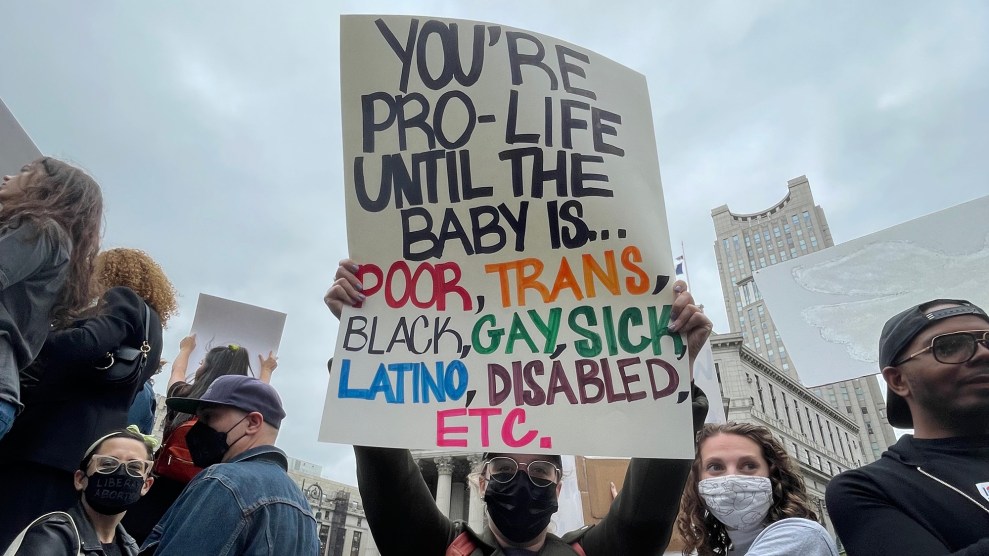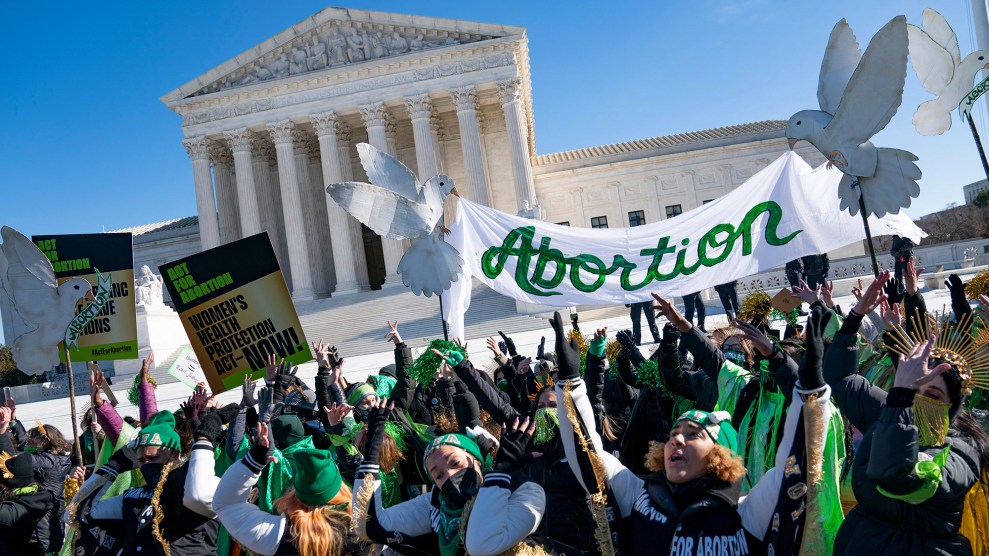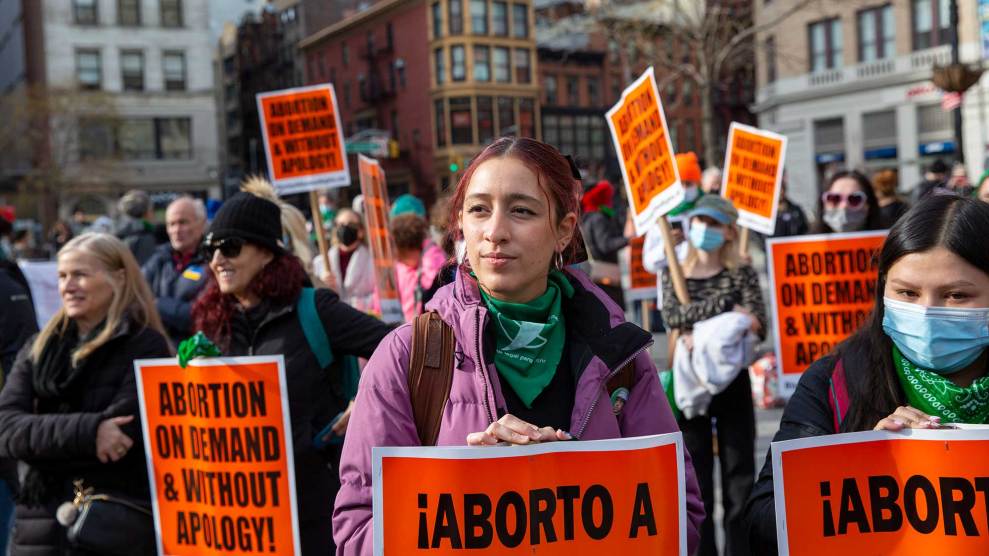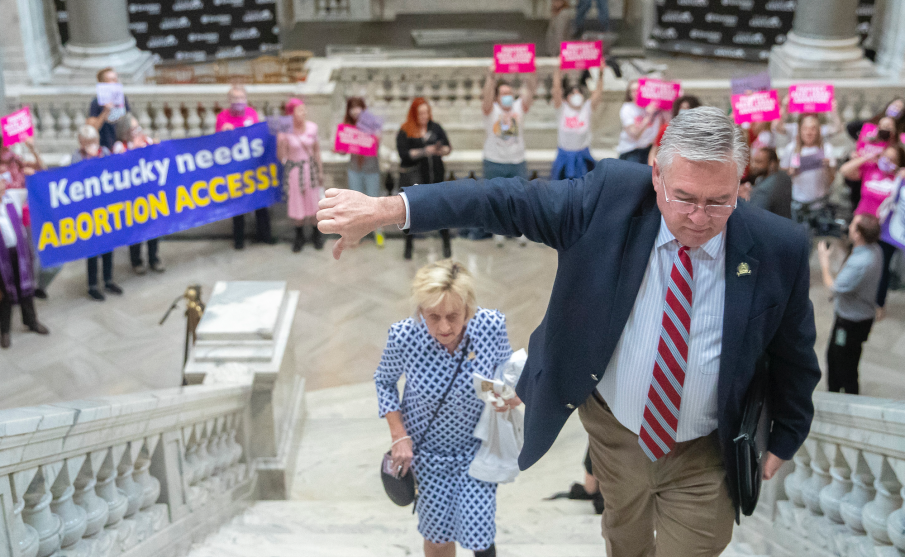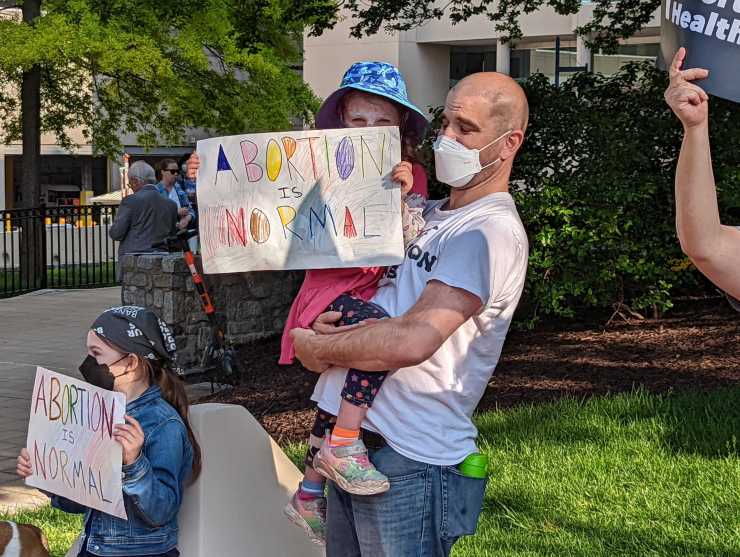
Emily Hofstaedter/Mother Jones
Late on Tuesday afternoon, a quiet but determined crowd began to gather outside the federal courthouse in Baltimore in a show of support for abortion rights. Like many others around the country, the protesters had organized after a draft opinion, published in Politico last night, showed that the Supreme Court is on the verge of overturning Roe v. Wade. They held signs saying, “Abortion is healthcare,” “Bans off our bodies,” and “We will not go back.”
“This fundamental right that has been in place for decades is at the precipice of being rolled back,” Maryland state Sen. Shelly Hettleman told the crowd as it grew. “What we have also learned is that elections have consequences…It matters who is setting those laws in each state. It matters who is in Congress. Tomorrow, if the Senate of the United States decided to protect our right to choice, it could do so.” Other speakers described the latest developments as “shocking” and “heartbreaking.”
“It is devastating to potentially lose Roe, but this is something that we have been seeing and preparing for for a long time,” said Lynn McCann, co-director of the Baltimore Abortion Fund. “So while it hurts, we are also here to acknowledge that Roe has never been enough for thousands of people.” Maryland has already been taking steps to anticipate a post-Roe world: Last month, the state legislature voted to allow more health professionals to perform abortions and to ensure that abortion care will be permanently covered by the state’s Medicaid program. McCann said that if Roe were overturned, Maryland could be a hub for people seeking abortions from neighboring states like Pennsylvania and West Virginia, where Republicans are working to restrict the procedure.
One protester, Brian Appel, brought his two daughters, eight-year-old Sophia and four-year-old Beatrix. The girls held signs in front of their sunscreen-smeared faces that read, “Abortion is Normal.” Appel said he worries about what the future will look like for his daughters. “They might one day choose to get an abortion, and we don’t want that to be mixed up with any political debate,” he said. “My wife and I are expecting a baby, and we were really proud when my oldest daughter said, ‘I just want to make sure it’s your choice to have it.’”
“For context, this sign is from 2018.”
– Jennifer, 26 Law student at UMD pic.twitter.com/OL5KYOwMmo— Emily Hofstaedter (@EHofstaedter) May 3, 2022
“I think that for queer people, we’ve always known that our rights are not guaranteed. It’s like that for people of color, and women… there’s this underlying knowledge [our rights] were fought for and that there’s no guarantee they will stay.”- Cusa, 29 Baltimore pic.twitter.com/8L2ZFBhCcb
— Emily Hofstaedter (@EHofstaedter) May 3, 2022
"They say 'no choice' we say 'pro-choice' " – a growing crowd outside the federal courthouse in Baltimore pic.twitter.com/uPWGRcqh0L
— Emily Hofstaedter (@EHofstaedter) May 3, 2022

